Trauma can deeply affect a person’s well-being and outlook on life, and it can often contribute to addiction. Finding the right therapy to confront and heal from trauma is an important step in addiction recovery. Whether you’d benefit from trauma therapy, cognitive-behavioral therapy, EMDR therapy, or another approach, Athens Recovery can help. In our addiction treatment center, we offer a wide range of therapies and services that can support lasting recovery. If you’re ready to learn more, connect with our team today at 844.959.4998 or reach out to us online.
The Connection Between Addiction and Trauma
Trauma is a common underlying cause of addiction. Traumatic experiences can include:
- Physical or sexual abuse
- Exposure to war
- Witnessing violent acts
- Natural disasters such as fires, floods, and earthquakes
These events can cause intense emotional pain that is often difficult to cope with without professional help. For some people, drugs, alcohol, and other substances can become a way of numbing difficult emotions. Unfortunately, this can lead to a cycle of addiction and further trauma.
Therapy, particularly trauma-focused therapy, can aid in managing these feelings, building resilience, and promoting growth.
Different Types of Therapy for Trauma
There is a wide range of therapeutic approaches available to address trauma. Some of the most effective ones include:
1. Trauma Therapy
Trauma therapy is designed specifically to address past traumatic experiences. This can include traditional talk therapy or specialized types of therapy like EMDR, somatic experiencing, or exposure therapy. Trauma therapy focuses on the emotions associated with trauma, helping individuals safely confront and process them with the guidance of a trained therapist.
2. Cognitive-Behavioral Therapy for Trauma
Cognitive-behavioral therapy (CBT) focuses on identifying and challenging negative thought patterns and beliefs that are associated with trauma. In CBT, clients work on developing new coping skills and deconstructing cognitive distortions that may have contributed to their trauma. This type of therapy can be used alone or in combination with other forms of trauma therapy.
3. Eye Movement Desensitization and Reprocessing Therapy for Trauma
Eye movement desensitization and reprocessing (EMDR) therapy involves a series of guided eye movements or other types of bilateral stimulation that help clients work through past traumatic experiences. This therapy focuses on reshaping negative beliefs and emotions associated with past traumas. EMDR therapy specifically targets traumatic memories, and it can be done in conjunction with other types of trauma therapy.
The Benefits of Trauma-Informed Care
Treatment that takes into account the impact of trauma can be incredibly beneficial for those facing addiction. Trauma-informed care allows individuals to address their underlying issues, work through their emotions, and gain the skills needed to build a strong foundation for long-term recovery.
Some of the specific benefits of trauma-informed care include:
- A safe, supportive environment where individuals can feel comfortable discussing their experiences
- The opportunity to learn healthy coping skills and strategies for managing difficult emotions
- Increased self-awareness and insight into behaviors that may have been driven by past traumas
- Assistance in improving self-esteem and developing healthier relationships
- Improved communication skills and the ability to set healthy boundaries
Whether you’d benefit from trauma therapy, cognitive-behavioral therapy, EMDR, or another approach to heal from past traumas, trauma-informed care can make a difference in your recovery.
Reach Out to Athens Recovery to Learn More
At Athens Recovery, we offer a range of addiction recovery programs that combine medical treatments with holistic approaches to care. We understand the importance of treating the underlying causes of addiction like trauma. If you or a loved one is struggling, reach out to us to learn more about our treatment options and approach to care.
Call 844.959.4998 or connect with us online today to get started.

